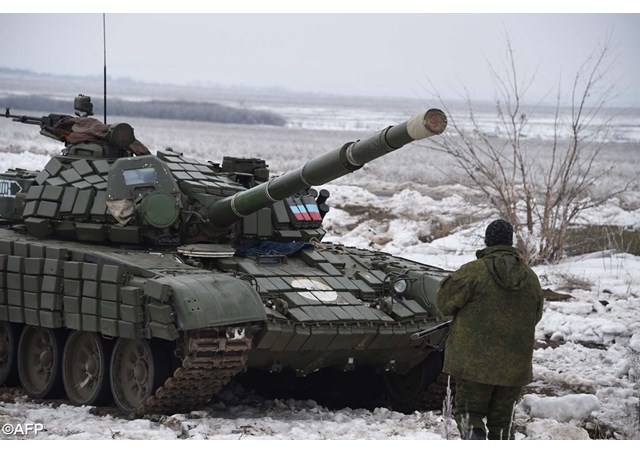
EU extends Russian sanctions over Ukraine

(Vatican Radio) European Union foreign affairs ministers have agreed to extend sanctions on Russia and pro-Russian separatists in Ukraine amid concerns over escalating violence in the region. Stefan Boss reports the measures were announced while Ukraine's military conceded that its forces had been overrun by Russia-backed separatists in their battle to hold onto a strategically important railway hub.
Listen to the report by Stefan Bos:
Though Moscow denies sending weapons and troops to pro-Russian rebels, European ministers decided to continue sanctions.
EU foreign policy chief Federica Mogherini said ministers agreed Thursday to extend travel bans and asset freezes against Russia until September. “The EU is ready to take further measures and to prepare further measures in the weeks to come if the situation doesn’t improve," she added.
"What we have decided today (are) three different things: extension in the time of the existing sanctions, when it comes to the list. Preparation for decisions of new names to add to the list, which is additional. And third, to start the preparation of any further measures.”
EU heads of state and government will meet for a summit in Brussels on February 12 to debate those further measures and how to deal with the escalating Ukrainian crisis.
Ukrainian troops struggle
The decision came while Ukrainian troops struggled to maintain control over the crucial railway hub of Debaltseve, nestled between the two main rebel-held cities of Donetsk and Luhansk. Dozens of civilians have been killed there in rocket attacks since last weekend alone.
Additionally the military, including an injured soldier, admitted that government forces had been overrun by pro-Russian separatists in the nearby town of Vuhlehirsk.
The Medical Service of Ukraine’s National Guard says up to 50 injured soldiers, several of them seriously wounded, are being brought in every day along with roughly a dozen civilians.
It remains unclear whether more EU sanctions will be able to end the conflict in which over 5,100 people have died since April last year.
Tensions remain within the EU over whether to renew sanctions over entire sectors of the Russian economy when they expire in July. Several member states are heavily dependent on Russian natural gas supplies and exports to that country.
| All the contents on this site are copyrighted ©. |


